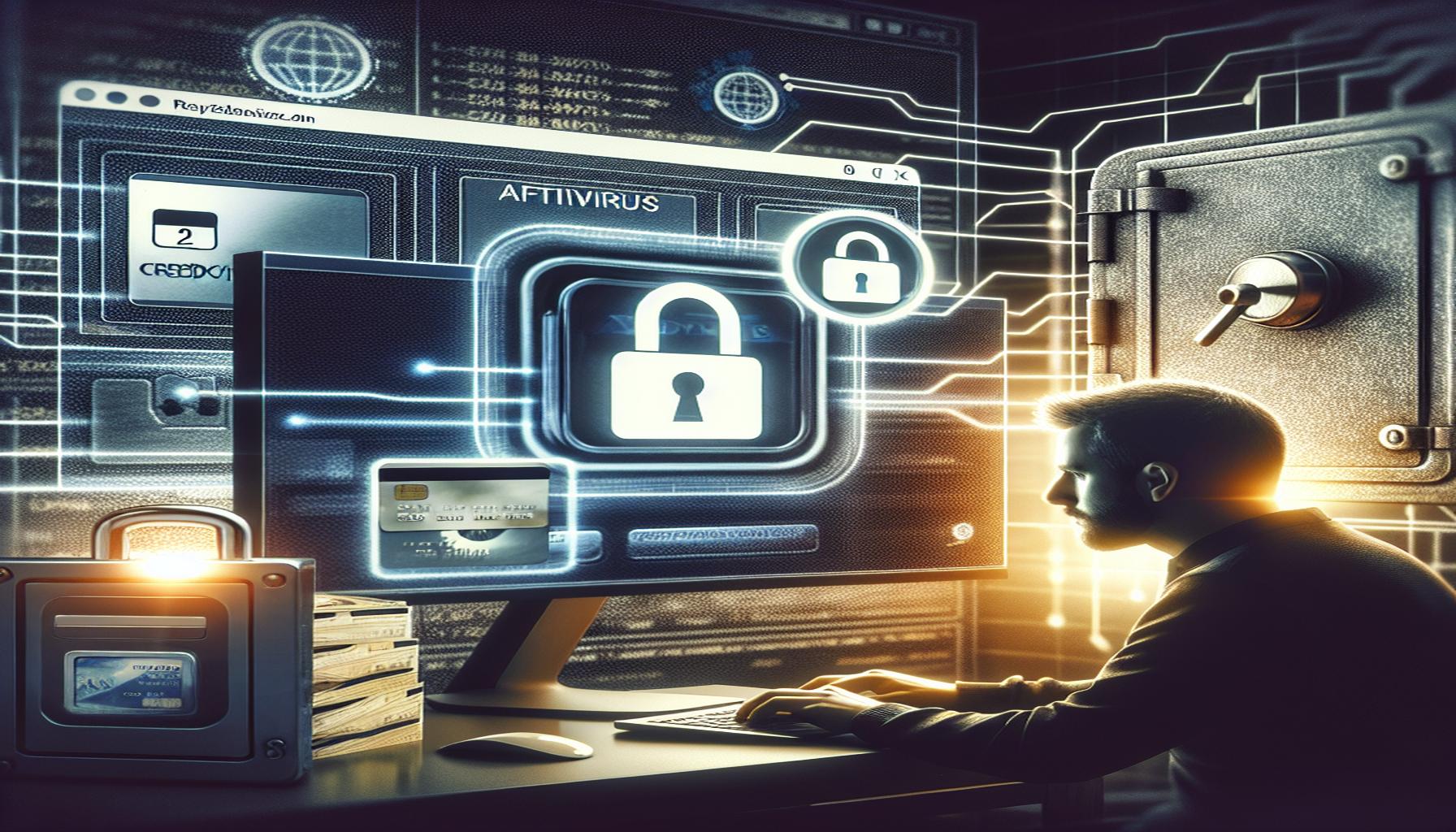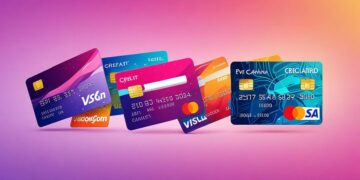How to Protect Your Financial Information Online

Importance of Financial Information Protection
In an era where online transactions have become the norm, the importance of safeguarding your financial information cannot be overstated. Every day, Australians engage in various online activities, such as banking, shopping, and investing, all of which require the sharing of sensitive data. Unfortunately, this digital landscape also creates numerous opportunities for cybercriminals to exploit vulnerabilities, leading to alarming rates of data breaches and identity theft.
Understanding the Risks
Data breaches can occur in various ways, such as through phishing scams, malware, or even vulnerabilities in company systems. For instance, a popular retail chain in Australia may experience a data breach, resulting in customer credit card information being exposed. If you’re one of those customers and haven’t taken the necessary precautions, the risk of identity theft increases dramatically. This is why understanding the risks involved when interacting online is fundamental for protecting your financial well-being.
Effective Strategies for Protection
Implementing effective measures to safeguard your information is key to reducing these risks. Below are some vital practices that you should consider:
- Use strong, unique passwords: A robust password should have at least 12 characters and include a mix of uppercase letters, lowercase letters, numbers, and symbols. For example, instead of using a simple password like “123456,” you might create something like “L3t$Secure2023!” which would be far more difficult for hackers to guess.
- Enable two-factor authentication: This security feature adds another challenge for anyone trying to access your accounts. When you log in, you might be required to enter a code sent to your mobile device. Even if someone gets hold of your password, they won’t have access without that second piece of information.
- Be cautious with public Wi-Fi: It can be tempting to log into your bank account using public Wi-Fi in a café, but this is highly risky. Hackers can easily intercept the data transmitted over unsecured networks. Instead, consider using a personal hotspot from your mobile device or a virtual private network (VPN) to keep your information secure when you must use public Wi-Fi.
Stay Informed
By being proactive and staying informed about the latest security practices, you can significantly diminish the likelihood of falling victim to online fraud. Financial safety is a shared responsibility, and the steps you take today can greatly impact your security tomorrow. Remember that taking these precautions not only protects your information but also contributes to a more secure online environment for the entire community.
Your financial safety is in your hands, and making informed choices will play a crucial role in your ability to navigate the digital world securely.
Strategies to Secure Your Financial Information
In today’s digital age, where online banking and e-commerce are part of our everyday lives, safeguarding your financial information is of paramount importance. Cyber threats are evolving, making it essential to employ a variety of strategies to ensure the safety of personal data. Implementing these protective measures will not only help keep your data secure but also foster a sense of confidence when conducting financial transactions online. Below are some effective tactics to consider:
- Regularly update your software: Staying on top of software updates is critical to maintaining the security of your devices. Operating systems, browsers, and applications frequently receive updates that address vulnerabilities identified by developers. For instance, if a popular banking app has a security flaw, an update might include a patch to fix that issue. By setting your devices to update automatically, you reduce the risk of falling victim to cyber-attacks that exploit outdated software. In Australia, many users may receive notifications for updates, and embracing these updates promptly can act as your first line of defence against potential breaches.
- Monitor your financial accounts: Regularly reviewing your bank and credit card statements is crucial for identifying any unauthorized activity. Familiarize yourself with your account transactions so that any unusual charges stand out immediately. If you spot a transaction that you do not recognize, report it to your bank as soon as possible. Australian banks often have robust systems for handling fraud, and a prompt report can minimize losses. Additionally, using tools such as transaction alerts can provide real-time updates on your spending, ensuring you stay informed about your finances.
- Be wary of unsolicited communications: Cybercriminals often employ phishing tactics, masquerading as trustworthy institutions to trick victims into revealing personal information. Be particularly cautious with emails, SMS, or phone calls that request sensitive details. For example, if you receive an email claiming to be from your bank asking for account verification, do not respond directly. Instead, contact your bank using the official phone number or website. Always scrutinise the sender’s details; phishing emails often contain slight variations in the address, which can serve as a red flag.
- Limit the information you share: During online transactions or when creating accounts, always consider whether the information being requested is essential. Many websites may ask for personal information like your phone number or address unnecessarily. For example, when ordering from an e-commerce site, you might only need to provide an email address and payment details. By sharing less personal information, you significantly reduce the risk of that data being exposed in a potential data breach, safeguarding your financial information from misuse.
By proactively incorporating these strategies into your routine, you can significantly enhance the protection of your financial information. Remember, securing your data is not a one-time activity; it requires ongoing vigilance and adaptability. The more safety measures you put into place, the less vulnerable you are to cyber threats. By taking control today, you contribute to a safer online experience, ensuring peace of mind for all your financial interactions in the future.
Enhancing Your Online Security Measures
Securing your financial information online requires more than just the basic protective steps. To further fortify your defenses against cyber threats, consider adopting these additional security measures. These strategies address the multifaceted nature of online threats, ensuring that you are well-prepared for various scenarios that could compromise your financial data.
- Use strong, unique passwords: Creating complex passwords is a fundamental aspect of securing your online accounts. A robust password typically includes a mix of uppercase and lowercase letters, numbers, and special characters. For instance, instead of using “Password123,” create a password such as “F1n4nc3$ecure!” This approach makes it significantly harder for hackers to guess your credentials. Furthermore, using unique passwords for different accounts ensures that if one account is compromised, others remain secure. You might also consider a trusted password manager to help you generate and store strong passwords securely.
- Enable two-factor authentication (2FA): Adding another layer of security through two-factor authentication can greatly enhance your online protection. Australian banks and many online services offer this option, requiring not just your password but also a second form of identification, such as a code sent to your mobile phone. This additional step means that even if someone obtains your password, they would still need access to your second factor to log in. Enabling 2FA can be notably beneficial for apps related to banking and finance, providing peace of mind as you manage your financial affairs.
- Manage your digital footprint: Understanding what information is publicly available about you online is essential for protecting your financial information. Regularly search for your name on search engines and check your privacy settings on social media platforms. Limit the amount of personal information shared publicly, as cybercriminals can use seemingly innocuous details to bypass security questions or impersonate you. For instance, if you celebrate a birthday or share your pet’s name on social media, these may be clues that hackers can leverage during phishing attempts.
- Use secure networks: Avoid conducting financial transactions over public Wi-Fi networks, as they are often targets for data thieves. When you are out and about, consider using a virtual private network (VPN) to encrypt your internet connection. A VPN makes your online activity much more difficult for cybercriminals to intercept, providing an additional layer of security. In Australia, many reputable VPN services are available that can secure your connection, especially when accessing sensitive information on the go.
- Be cautious with mobile apps: Mobile banking and financial apps can simplify managing your finances but can also pose risks if they are not secure. Before downloading any app, research its ratings and reviews. Check that the app comes from a reputable developer and is regularly updated. Additionally, only download apps from trusted sources, such as the Apple App Store or Google Play Store, to reduce the likelihood of exposing your financial information to unverified or malicious applications.
Incorporating these enhanced security measures into your financial routines can significantly lower your risk of falling victim to cyber threats. With continuous developments in technology and online threats, staying informed and proactive about your financial security is more crucial than ever. Implementing these strategies can help ensure that your financial data remains safe while you enjoy the conveniences of digital banking and online transactions.
Conclusion
In today’s digital landscape, safeguarding your financial information online is not just a precaution but a necessity. With increasing cases of cybercrime, understanding how to protect yourself can significantly mitigate risks.
To begin with, using strong, unique passwords for your online accounts is fundamental. A strong password typically contains a mix of uppercase letters, lowercase letters, numbers, and symbols. For example, instead of using “password123”, consider a passphrase like “SunnyDay@2023”, which is both memorable and harder to crack. Additionally, employing a password manager can help you generate and store unique passwords for each of your accounts securely.
Enabling two-factor authentication (2FA) adds another layer of security. This means that even if someone gets hold of your password, they would still need to verify their identity through a second method, such as a code sent to your mobile phone. Many Australian banks and online services now offer 2FA, making it an easy and effective way to enhance your account security.
Moreover, managing your digital footprint—the trail of data you leave online—is crucial. Be mindful of the information you share on social media platforms and avoid oversharing personal details that could be used to compromise your accounts. Regularly reviewing your privacy settings and deleting old accounts can help limit your exposure.
When it comes to financial transactions, only use secure networks. Avoid public Wi-Fi for banking and shopping, as these networks can be easily compromised. Instead, opt for a secure connection or your mobile data when making sensitive transactions. Exercise caution with mobile apps as well; always download apps from reputable sources, and keep them updated to protect against potential vulnerabilities.
Financial institutions and technology providers are continually working to improve security protocols, but the ultimate responsibility lies with you, the individual user. Staying informed about the latest security trends and being proactive about your online safety will go a long way in protecting your assets. As you navigate the conveniences of digital banking and online shopping, consider these protective measures as essential tools in your arsenal against cyber threats. By prioritizing your financial security, you can confidently engage in the digital world, knowing that your information is well-protected.

Linda Carter is a writer and financial expert specializing in personal finance and financial planning. With extensive experience helping individuals achieve financial stability and make informed decisions, Linda shares her knowledge on the Take Care Garden platform. Her goal is to empower readers with practical advice and strategies for financial success.






